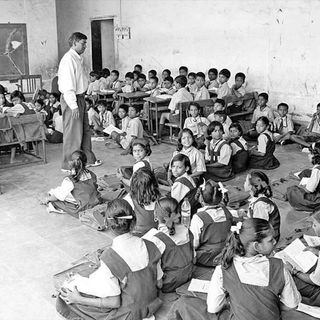Under the Covid19 lockdown, working mothers in dual-income households have been able to do only one hour of uninterrupted, paid work for every three hours logged in by their male partners, according to a study.
Conducted by University College London and the Institute of Fiscal Studies (IFS), the study sought to understand the household work imbalance between men and women under lockdown. Researchers collected responses from 3,500 families between April 29 and May 15 through an online survey. The results showed that mothers are spending far more of their paid work hours simultaneously trying to care for their children, in comparison to fathers. In fact, mothers are being able to devote, on an average, a third of the uninterrupted paid-work hours of fathers.
Comparing this to previous figures, the researchers noted that prior to the lockdown, mothers were able to log around 60 percent of the uninterrupted work hours of fathers — underscoring and exposing the existing work imbalance between genders being reinforced by the health crisis. The researchers also expressed concerns about the impact of this sharp reduction in mothers’ work hours on their careers in the longer run.”[Mothers] experience more interruptions while they work from home than fathers, particularly due to caring for children. A risk is that the lockdown leads to a further increase in the gender wage gap,” Alison Andrew, a senior economist at IFS, who was involved in the study, said.
Related on The Swaddle:
Global Analysis Says 31 Million Female Workers Face Job Cuts Due to Covid19
“What this study shows is that we are going backwards, and that is extremely worrying. This will reverse decades of progress on women’s participation in the labour market,” Sam Smethers, the chief executive of Fawcett Society, a charity campaigning for gender equality and women’s rights, told The Guardian. While echoing the researchers’ concerns, she also added that a spike in the so-called ‘motherhood penalty‘ could be in the cards. This refers to the idea that working mothers already encounter systemic workplace biases in comparison to childless women (and men, of course), leading to disadvantages in terms of hiring, pay, and daily job experience — these existing biases might only be amplified by the reality that women need to do more childcare under lockdown.
In India too, working women are bearing the brunt of childcare and household chores under lockdown, especially in the absence of domestic workers due to social distancing rules. “In the last few weeks, it has become increasingly difficult to run the home. And it is women who are taking the hit,” Mahesh Vyas, chief executive of the Centre for Monitoring Indian Economy, told Hindustan Times last month.
Given that nurseries and schools will possibly continue to stay shut for some time, it is unlikely that women’s childcare burdens are going to ease anytime soon, which will only lead to them staying at home to care for the kids and juggle responsibilities even as offices begin to open and people start getting back to work.




